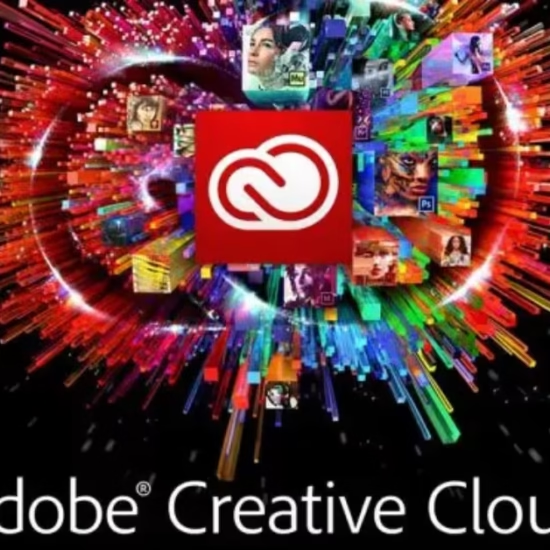
The Tech World: Where Innovation Meets Everyday Life
Ah, tech companies—love them or hate them, they’re woven into the fabric of our lives. From the moment we wake up (thanks to a smartphone alarm) to the last scroll through social media before bed, tech companies are there, shaping how we work, play, and connect. But behind every app, gadget, or algorithm is a fascinating ecosystem of innovation, competition, and sometimes a little controversy.
Let’s dive into this world and have a candid conversation about tech companies—what they do, why they matter, and how they’re changing everything from the way we shop to the way we think.
The Big Players: Titans of Tech
When you think of tech companies, a few giants probably come to mind: Apple, Microsoft, Google, Amazon, and Meta (formerly Facebook). These companies have reached a point where they’re not just businesses—they’re cultural institutions. Apple doesn’t just sell gadgets; it sells an experience, a lifestyle. Microsoft powers the backend of industries you didn’t even know existed. Google has become a verb. Amazon practically runs your household logistics. And Meta… well, let’s just say their quest to dominate the metaverse is one we’re all cautiously watching.
READ MORE: Top 10 IT Companies in the World in 2024
These companies are so big that their moves ripple through economies. When Apple announces a new iPhone, it’s not just a launch; it’s a global event. The supply chain shifts, accessory makers scramble, and fanboys line up outside stores (and on social media) to declare their allegiance. It’s wild. And let’s be honest—sometimes it’s exhausting. Do we really need a phone that folds in half again?
Startups: The Underdogs Driving Innovation
But it’s not just about the big dogs. Tech startups are the lifeblood of the industry. These scrappy little companies are where the craziest, most out-of-the-box ideas often emerge. Ever heard of OpenAI before ChatGPT? Probably not. Yet, here we are, having this conversation on the shoulders of a once-small research lab that dared to dream big.
Startups operate on adrenaline, innovation, and the allure of disrupting the status quo. They’re the ones asking, “What if we could deliver groceries by drone?” or “Can we make clean energy as common as Wi-Fi?” Sometimes these ideas flop, but when they hit, they hit big. Think Airbnb, which transformed the hospitality industry, or Tesla, which redefined what an electric car could be.
The charm of startups lies in their ability to do things differently. They’re agile, idealistic, and often willing to take risks that the bigger players won’t. But let’s not romanticize too much—they’re also notoriously unstable, with high-pressure environments that can lead to burnout. The tech world isn’t all hoodies and free kombucha.
The Controversies: It’s Not All Sunshine and Code
Of course, no conversation about tech companies is complete without addressing the elephant in the room: controversy. As much as these companies innovate, they also face a ton of scrutiny—and rightfully so.
Take privacy, for example. Companies like Meta and Google collect an absurd amount of data about us. Sure, it helps them serve you eerily relevant ads, but it also raises big questions about how much we’re willing to trade for convenience. And don’t even get me started on the algorithms. Social media platforms know exactly how to keep you scrolling, often at the expense of your mental health. Is it their fault, or ours? Maybe it’s both.
Then there’s the issue of monopolies. Critics argue that big tech companies are stifling competition and innovation. Why build a new app when you know Facebook will either buy you out or clone your product within six months? (RIP Snapchat Stories.)
And let’s talk about ethics. As tech companies experiment with AI, automation, and other frontier technologies, they’re entering murky waters. Self-driving cars, for instance, sound great—until you consider the ethical dilemmas involved in programming a machine to make life-or-death decisions.
The Human Side of Tech
Amid the code and controversies, it’s easy to forget that tech companies are powered by people. Engineers, designers, marketers, and product managers all play a role in bringing these innovations to life. And while the industry can sometimes seem like a cold, algorithm-driven machine, the human stories are often the most compelling.
Take women in tech, for instance. It’s no secret that the industry has long struggled with diversity, but there’s been a push in recent years to level the playing field. Organizations like Girls Who Code are helping to inspire a new generation of female engineers, and many companies are reevaluating their hiring practices to ensure inclusivity.
Or consider the tech employees who take a stand. In 2018, Google employees staged a walkout to protest the company’s handling of sexual harassment claims. Moments like these remind us that even in an industry obsessed with efficiency, humanity still matters.
How Tech Shapes Culture
What’s fascinating about tech companies is how deeply they influence culture. Think about how smartphones have changed the way we interact with the world. Thanks to apps like TikTok, creativity has been democratized—anyone with a phone can create content that reaches millions. And yet, it’s also changed how we socialize. When was the last time you had a conversation without checking your phone mid-sentence? (No judgment—I’m guilty too.)
Tech companies also have a hand in defining trends. Remember when Clubhouse had us all obsessed with audio-only social networking? Or when everyone was downloading Duolingo to learn a new language during quarantine? These trends come and go, but they show how quickly tech can shape (and sometimes disrupt) our routines.
The Future: What’s Next?
So, where are tech companies headed? If recent trends are any indication, the future is going to be wild. AI is on the rise, not just in obvious ways like chatbots but in fields like healthcare, where algorithms can help diagnose diseases. The metaverse promises to blend our physical and digital lives, though let’s be honest—it’s still unclear whether that’s going to be a game-changer or a total flop.
Sustainability is another big focus. Companies like Tesla and Beyond Meat are showing that tech can play a role in tackling climate change. Meanwhile, others are exploring “moonshot” projects, like colonizing Mars or harnessing nuclear fusion. Are these ideas a bit out there? Sure. But then again, so was the idea of carrying a tiny computer in your pocket 20 years ago.
A Love-Hate Relationship
If you’ve made it this far, you’ve probably realized something: our relationship with tech companies is complicated. On one hand, they make our lives easier, more connected, and often more exciting. On the other, they raise big ethical questions and sometimes overstep boundaries.
But here’s the thing—tech isn’t going away. If anything, it’s becoming more entrenched in our lives. So maybe the best approach is to stay curious, ask questions, and hold these companies accountable while still appreciating the ways they push humanity forward.
At the end of the day, tech companies are a reflection of us: ambitious, flawed, and endlessly curious. And as long as they keep innovating (and maybe chill out on the data collection), there’s no telling what they’ll dream up next.
What about you? Do you have a favorite tech company or a gadget you can’t live without? Or maybe a bone to pick with Silicon Valley? Let’s keep the conversation going—because, love it or hate it, tech is here to stay. And it’s shaping our world in ways we’re just beginning to understand.










